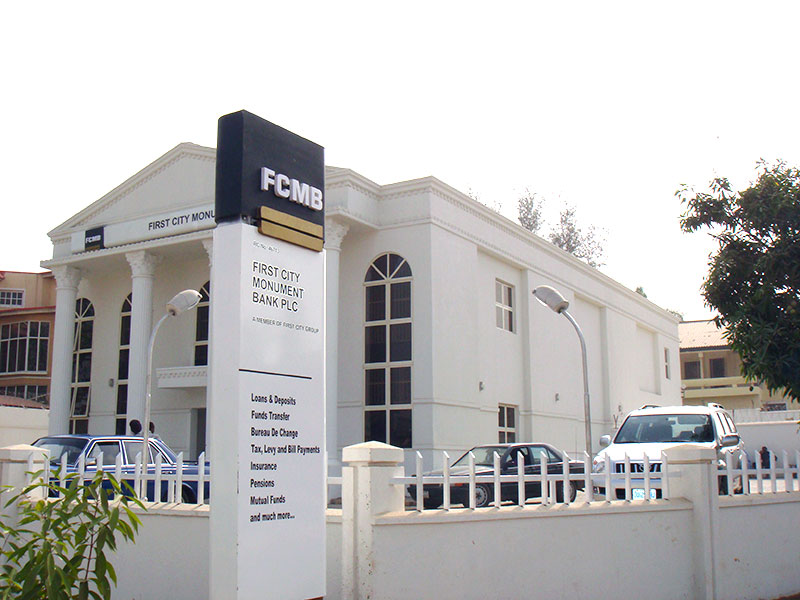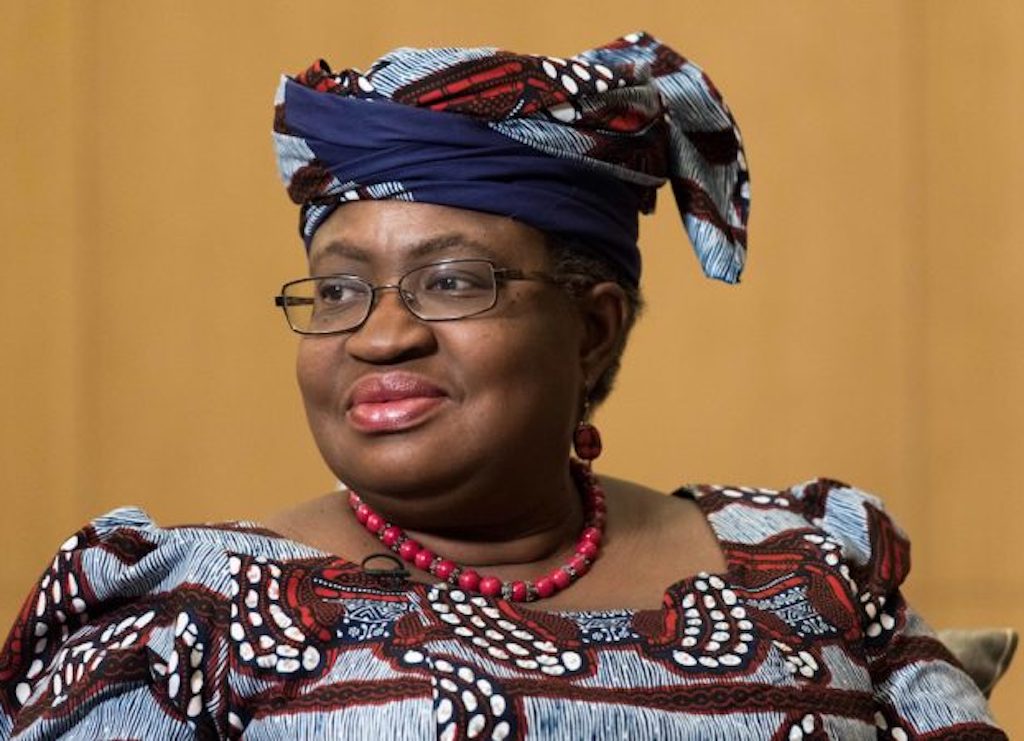The 15 domestic workers, including both men and women, have been behind bars since 2019 following an accusation of theft involving missing jewellery reportedly belonging to the former First Lady.
ArticlesRead More
Olayemi Cardoso: Rebuilding Confidence, Reducing Vulnerabilities in Nigeria’s Economy
Olayemi Cardoso: Rebuilding Confidence, Reducing Vulnerabilities in Nigeria’s Economy
Donatus Eleko
The Governor of the Central Bank of Nigeria (CBN), Mr. Olayemi Cardoso, has been at the forefront of concerted efforts to restore confidence in the nation’s economy. His strategies are centered on stabilising the foreign exchange market, curbing inflation, and creating an environment that attracts foreign investment.
In line with this effort, the CBN few days ago reported a marked improvement in its net foreign exchange reserve (NFER), which stood at $23.11 billion in 2024.
According to a statement from the central bank, the figure was the highest level of FX accretion in three years, compared to $3.99 billion in 2023, $8.19 billion in 2022, and $14.59 billion in 2021. The accretion reflected a remarkable improvement in the country’s external liquidity, reduced short-term obligations, and renewed investor confidence. Gross external reserves also increased to $40.19 billion, compared to $33.22 billion in 2023.
Commenting on the development, Cardoso, declared that the improvement in net reserves was not accidental but, “outcome of deliberate policy choices aimed at rebuilding confidence, reducing vulnerabilities, and laying the foundation for long-term stability.”
He said, “We remain focused on sustaining this progress through transparency, discipline, and market-driven reforms.”
NFER, which adjusts gross reserves to account for near-term liabilities such as FX swaps and forward contracts, is widely regarded as a more accurate indicator of the foreign exchange buffers available to meet immediate external obligations.
The increase in reserves reflects a combination of strategic measures undertaken by the CBN, including a deliberate and substantial reduction in short-term foreign exchange liabilities – notably swaps and forward obligations, the apex bank stated.
The strengthening was also spurred by policy actions to rebuild confidence in the FX market and increase reserve buffers, along with recent improved foreign exchange inflows – particularly from non-oil sources.
The outcome further reflected a stronger and more transparent reserve position that better equips the country to withstand external shocks.
The expansion occurred even as the CBN continues to reduce short-term liabilities, thereby improving the overall quality of the reserve position.
However, reserves have continued to strengthen in 2025. While the first quarter figures reflected some seasonal and transitional adjustments, including significant interest payments on foreign-denominated debt, underlying fundamentals remained intact. The central bank added that reserves are expected to continue improving over the second quarter of the year.
The bank further anticipated a steady uptick in reserves, underpinned by improved oil production levels, and a more supporting export growth environment expected to boost non-oil FX earnings and diversify external inflows.
Applauding the Cordoso-led CBN, analysts at JP Morgan noted that Nigeria’s local markets remain its top trade recommendation within frontier markets.
They stressed that despite increasing global risks, they have maintained a bullish stance in frontier local markets as they remain insulated from the United States growth slowdowns and offer sufficient rates buffer to cushion potential short-lived FX losses.
“As a result, we recently rolled our maturing Nigeria treasury bill trade into a new Nigeria Open Market Operation (OMO) bill, as the carry trade worked well over the past year and we expected it to continue performing well given potential imminent catalysts.
“Some of those catalysts have now materialised as the CBN has now published net FX reserves (near-term catalyst). Net FX reserves came in in line with expectations, but CBN’s commitment to improve quality of reserves shouldn’t be understated.
“While CBN didn’t publish detailed data of its short- and medium-term foreign liabilities, providing some insight into its net reserves is a significant step in the right direction. This is in line with our broader view that the current government (and by extension, the CBN) is indeed committed to a more market-friendly approach to policymaking,” it stated.
In the assessment of JP Morgan’s analysts, why the dollar/naira was under so much pressure last year, going forward it should face less pressure as the central bank may ease off on the pace of net reserve accumulation.
“We maintain a bullish stance in Nigeria and recently rolled our bill trade. Given substantial reforms already implemented and likelihood of new catalysts, we still think this is one of the best trades to hold within frontier local markets. NGN continues to screen as cheap both on our fundamental models and relative to reforms already implemented.
“This is mainly because the central bank has kept FX spot elevated in order to aggressively improve the FX reserves picture. Now that net reserves data has been published, the central bank might ease off aggressively absorbing inflows, which could result in USD/NGN moving moderately lower, declining to around N1,450/$ by year-end.
“We also think there is scope for both short-dated bills and longer-tenored bond yields to decline in 2H25 as the new inflation series gives the central bank some room to cautiously deliver some cuts,” they added.
Cardoso has continued to express satisfaction over the growing investor confidence in the country’s economic trajectory.
Cardoso also acknowledged recent challenges confronting the economy, noting that progress had been recorded in stabilising the foreign exchange market as well as taming headline inflation.
He recalled recent visits by top executives from JP Morgan, Citi Bank, and International Monetary Fund (IMF), saying they further demonstrated that the country remains in the right direction.
He said, “These are individuals who base their decisions on data and trends, not sentiment. Their interest reaffirms that we are on the right path.”
The CBN governor reaffirmed the bank’s commitment to fostering intellectual engagement and policy-driven solutions. He emphasised the value of exchanging ideas and fostering partnerships to strengthen trust and understanding in Nigeria’s financial system.
Cardoso said, “As we reset the bank, we are committed to being a hub for thought leadership. The exposure you gain from institutions like Harvard is invaluable, and we see this as an opportunity to build long-term alliances.”
Since his appointment as CBN Governor, the apex bank has implemented a series of ground-breaking measures aimed at enhancing market transparency, improving financial stability, fostering a more secure investment environment, and shifting towards a market-driven exchange rate regime, to restore confidence and stabilise the economy.
From enhancing market transparency through restricting unearned income distribution to facilitating Nigeria’s delisting from the FATF Grey List, the CBN has demonstrated a steadfast commitment to strengthening the financial system. The introduction of new guidelines for dormant accounts, the suspension of processing fees to encourage cash deposits, and the advanced use of Early Warning Systems further underscores the central bank’s dedication to promoting stability and trust within the financial sector.
Undoubtedly, his more than one year in office has been marked by some achievements and challenges that have tested his leadership and the institution’s resilience.
However, owing to reform measures, the CBN reported a significant increase in remittance inflows.
Also, the CBN under Cardoso has recorded some progress in its fight against the soaring inflation rate in the country that had plagued the nation for years. By aggressively tightening monetary policy, the CBN aimed to curb excessive money supply, a key driver of inflation.
Cardoso made inflation tackling his paramount mission and the essential path to achieving sustainable economic growth in the mid to long term as well as improving the standard of living of ordinary Nigerians.
Owing to that, in the last one year, the CBN adopted an aggressive monetary policy stance that involved increasing interest rates. This, in theory, reduced spending and investment, thereby cooling down demand in the economy. Additionally, the bank has been implementing measures to mop up excess liquidity from the system, further tightening financial conditions.
The implementation of an Inflation-Targeting (IT) framework by Cardoso, aims to stabilise price levels, reduce currency volatility, and foster sustainable economic growth.
There have been enhanced communication and strategic actions that have helped in minimising economic uncertainties and building trust among investors and the public.
There has also been a visible improved monetary-fiscal coordination as the Fiscal and Monetary Policy Coordination Framework (FMPCF) was developed to improve synergy between monetary and fiscal policies, ensuring better economic management. The Financial Services Regulation Coordinating Committee (FSRCC) has also been strengthened with regular inter-agency meetings and collaborations on issues such as cryptocurrency frameworks and infrastructure financing. The Carbon Market Framework was also developed with the Nigerian Climate Change Council to attract sustainable finance and foreign investment.
Additionally, the central bank has improved the communication of monetary policy decisions through strategic planning and engagement with media and stakeholders, introduced podcasts, and enhanced social media presence to provide timely updates and engage the public effectively. It has also introduced big data for more informed monetary policy decisions through tools like Dynamic Integrated Analytic Modeling and Macro Diagnostic Framework and maintained high forecast accuracy and developed news-based indices for policy uncertainty.
All in all, Cardoso as CBN Governor has shown a clear focus on restoring stability and confidence in the nation’s economy. The observed increase in Nigeria’s net foreign exchange reserves, coupled with the reduction of short-term liabilities, indicates that the implemented policy decisions are yielding positive results.
These actions, aimed at fostering a more transparent and market-driven financial environment, are crucial for attracting sustainable investments and bolstering Nigeria’s resilience against external economic shocks. While ongoing economic challenges persist, the steps taken by Cardoso and the CBN demonstrate a commitment to laying a foundation for long-term economic stability and growth.
Continued adherence to prudent fiscal policies, coupled with the diversification of foreign exchange inflows, will be essential in solidifying these gains and ensuring a more robust economic future for Nigeria.
Donatus Eleko The Governor of the Central Bank of Nigeria (CBN), Mr. Olayemi Cardoso, has been at the forefront of concerted efforts to restore confidence in the nation’s economy. His


